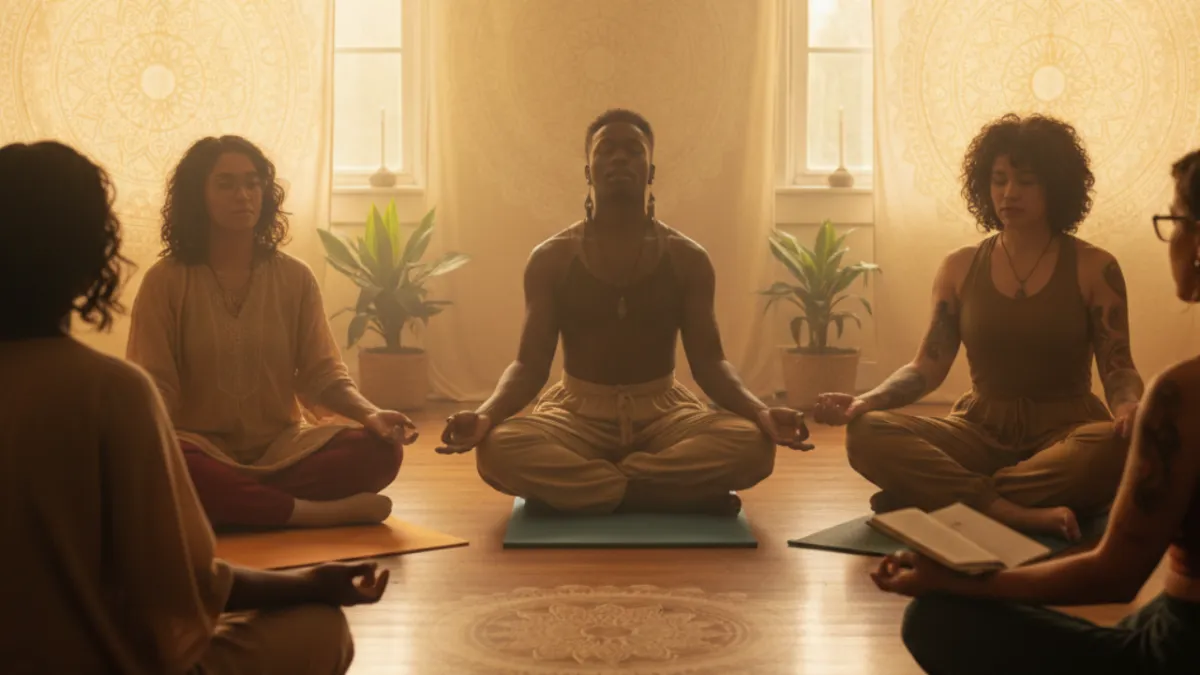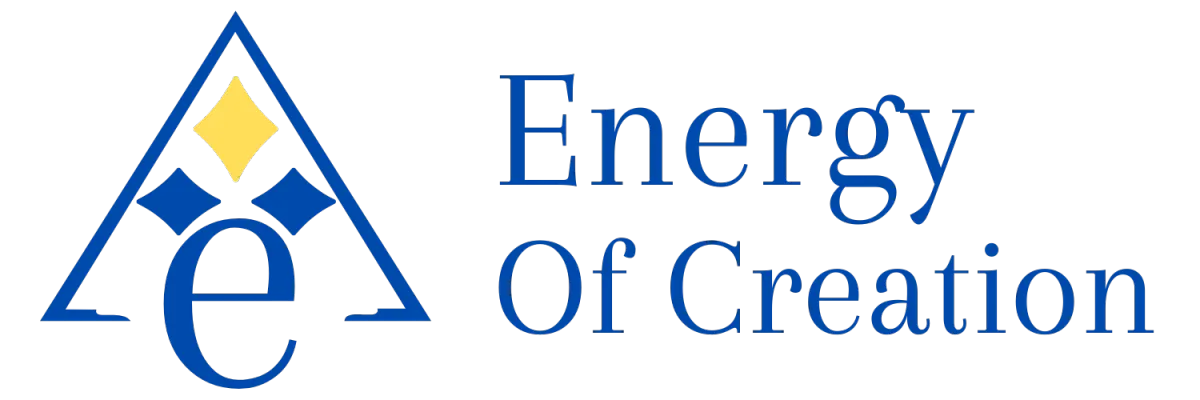
The 8 Limbs Aren’t Just Poses: Yoga as a Complete Life System
TL;DR:
Yoga is so much more than physical postures. The 8 Limbs of Yoga, rooted in ancient wisdom, provide a full system for living with integrity, balance, and liberation. For QTPOC and neurodivergent folks, these teachings go beyond wellness trends — they offer tools for nervous system regulation, authentic expression, and community-centered healing. You don’t need to “master” all eight; each limb offers accessible practices that adapt to your unique journey.
Why Yoga Is More Than Poses
When most people hear “yoga,” they picture flexible bodies in trendy clothes striking Instagram-worthy poses. But that’s only a fraction of yoga — less than 20%.
The true foundation of yoga comes from the 8 Limbs of Yoga, outlined by sage Patanjali thousands of years ago. This framework isn’t just about fitness; it’s about creating harmony between your body, mind, spirit, and community.
For QTPOC and neurodivergent communities navigating systems that weren’t built with us in mind, the 8 Limbs aren’t abstract philosophy — they’re practical tools for liberation.
Limb 1: Yamas (Ethical Guidelines)
The Yamas aren’t rigid rules. They’re invitations to reflect on how we show up in the world:
Ahimsa (non-violence): Extends to how we talk to ourselves about neurodivergence or queerness.
Satya (truthfulness): Honors authentic self-expression, even if it challenges others’ comfort.
Asteya (non-stealing): Recognizes that hiding our true selves robs the world of our brilliance.
Limb 2: Niyamas (Personal Practices)
The Niyamas turn the focus inward:
Saucha (cleanliness): Could look like digital boundaries to protect energy.
Santosha (contentment): Doesn’t mean tolerating injustice — it means finding peace within as you create change.
Tapas (discipline): For neurodivergent minds, discipline isn’t punishment. It’s sustainable dedication that adapts to your rhythms.
Limb 3: Asana (Physical Postures)
Yes, asana is what most of the West thinks yoga is. But its true purpose is preparing the body for stillness and meditation.
For QTPOC and neurodivergent folks, embodiment yoga means listening to your body’s wisdom. Modification isn’t failure — it’s respect for your body’s unique needs.
Limbs 4 & 5: Pranayama (Breath Work) + Pratyahara (Withdrawal of Senses)
These practices directly support the nervous system:
Pranayama: Breathwork helps regulate emotions, reduce stress, and create inner balance.
Pratyahara: Learning to manage sensory input is especially powerful for neurodivergent folks who often experience overstimulation.
Together, they create the foundation for nervous system resilience.
Limbs 6–8: Dharana, Dhyana, Samadhi
These final stages represent deepening awareness:
Dharana (Concentration): Training focus without rigidity.
Dhyana (Meditation): Developing presence and clarity.
Samadhi (Union/Bliss): A natural outcome of consistent practice, not a faraway goal.
These aren’t about achieving perfection — they’re about connection, both inward and outward.
Why the 8 Limbs Matter for Liberation
The 8 Limbs recognize a truth often missing from modern wellness: you can’t separate personal healing from ethical living.
For someone with ADHD, the 8 Limbs offer structure without rigidity.
For someone facing marginalization, they provide inner peace while fueling outer justice.
This is a system that doesn’t demand conformity — it adapts to you.
How to Begin Your Journey
You don’t need to practice all 8 Limbs at once or in order. Start where you feel called:
Breathwork if your nervous system needs calming.
Ethical reflection if you’re aligning actions with values.
Physical asana if reconnecting with your body feels urgent.
The 8 Limbs are a flexible, supportive framework — not a rigid path.
Yoga as Collective Transformation
The beauty of yoga is that it’s not just personal. Healing ripples outward.
When QTPOC and neurodivergent communities embrace the 8 Limbs, we aren’t just practicing yoga — we’re rewriting what liberation, wholeness, and community care look like.
Yoga isn’t about perfection. It’s about aligning with truth, freedom, and love — for yourself and for the collective.
FAQs: The 8 Limbs of Yoga
1. What are the 8 Limbs of Yoga?
They are a holistic framework created by Patanjali, including ethical guidelines (Yamas, Niyamas), physical practice (Asana), breathwork (Pranayama), sensory regulation (Pratyahara), focus (Dharana), meditation (Dhyana), and blissful union (Samadhi).
2. Do I need to practice all 8 Limbs at once?
No. You can start with whichever limb feels accessible — whether that’s breathwork, movement, or ethical reflection.
3. How are the 8 Limbs relevant for neurodivergent folks?
They offer adaptable practices that respect unique rhythms, sensory needs, and natural ways of processing.
4. Why are the 8 Limbs important for QTPOC communities?
They provide tools for personal and collective liberation, affirming that healing is inseparable from justice and community connection.
5. Is yoga just about physical poses?
No. Asana is only one of eight limbs. The full system is about living with awareness, integrity, and balance.
Deepening Your Practice: 7-Day Journey Into the 8 Limbs of Yoga
Yoga isn’t just about what happens on the mat — it’s a complete system for living with integrity, regulating your nervous system, and finding freedom in a world that often tries to box us in. That’s why at Energy of Creation, we weave the wisdom of the 8 Limbs into everything we do, from breathwork and sound healing to movement and lifestyle recalibration.
Victoria and I aren’t just passionate practitioners — we’re both 500hr+ certified yoga teachers who’ve studied deeply and lived this work. And we’ve seen firsthand how these teachings can transform the lives of QTPOC, queer, and neurodivergent communities when practiced in a way that honors our unique rhythms and lived experiences.
✨ That’s exactly why we created our Living the 8 Limbs Course — a guided journey that takes you beyond poses into practical, heart-centered tools you can use daily.
Inside, you’ll learn:
✅ How to apply the Yamas & Niyamas in real life (without the dogma)
✅ Accessible breathwork + nervous system regulation practices
✅ Embodiment techniques that meet your body where it’s at
✅ Meditation & focus practices designed for modern, busy, neurodivergent minds
If you’ve ever felt yoga was about contorting into shapes that didn’t fit, this is your invitation to experience it as a holistic life system built for liberation.
👉🏽 Register now for our Living the 8 Limbs Course and begin your journey into the deeper wisdom of yoga.
Your healing matters. Your voice matters. Your liberation is part of the collective.
Peace and much much love 💜


